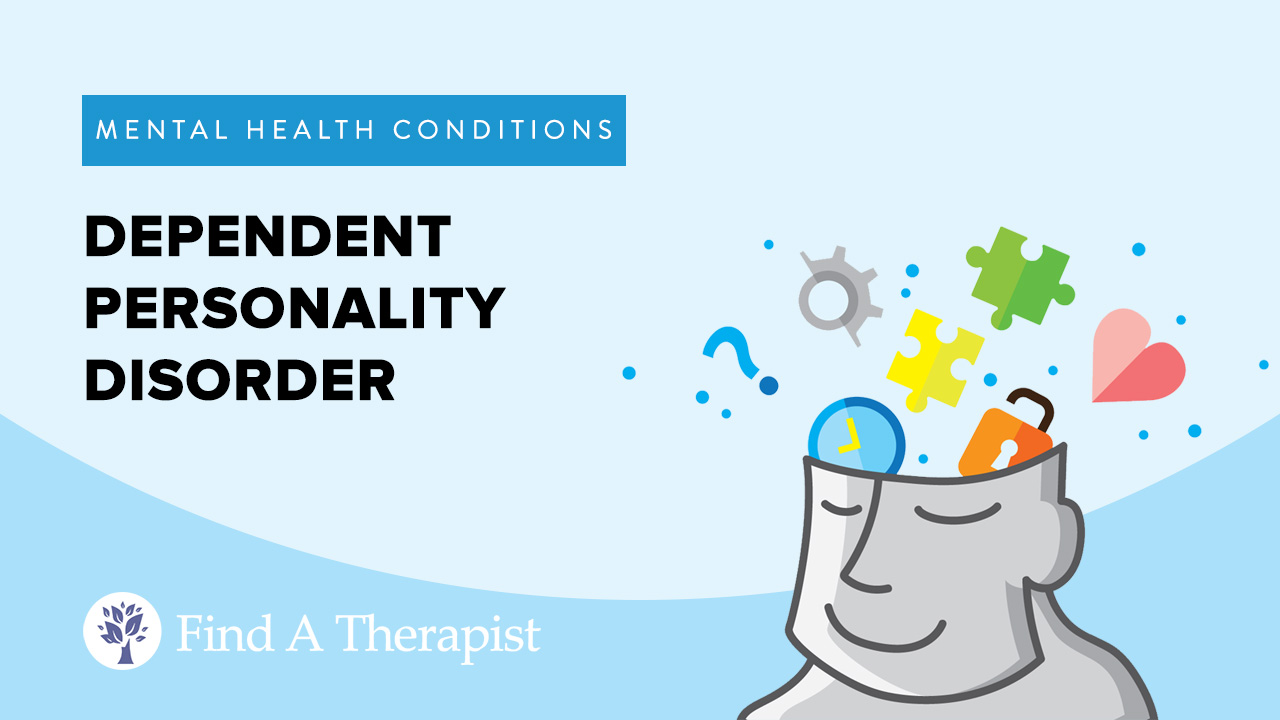What It’s Like To Have Dependent Personality Disorder
Published on June 6th, 2018
Updated on January 4th, 2024

Dependent personality disorder (DPD) is an anxious personality disorder. It is a disorder in which a person has intense dependence on others. A person with DPD does not believe they can take care of themselves. This causes them to feel dependent on others. It also causes behavior that is often described as ‘needy’ or ‘clingy’ as a result of a fear of rejection.
People with DPD constantly seek attention and validation from loved ones. They have a very hard time with being alone. People with DPD have low self-esteem and a negative self-image. They often doubt themselves and do not hold themselves in high regard. Affected people may feel they are not worth the affections of others and believe that any affections will not last. This causes fear of abandonment and a constant need for reassurance from others.
People with DPD often struggle with relationships. Their neediness can be overwhelming for those who are close to them. The constant fear of abandonment can cause stress on both the affected person and their loved ones. DPD can cause people to go to desperate measures to not be abandoned by those who they feel they need to be okay. This causes unhealthy dynamics within relationships.
Sponsored by

Choose a therapist to work with and start healing with 20% off from BetterHelp.
Click HereSymptoms of Dependent Personality Disorder
A person with DPD needs approval from others close to them to feel okay. They crave it so intensely that they will engage in unhealthy behaviors. Such behaviors that are not healthy for the affected person or those around them include:
- Submissive behavior and avoidance of conflict
- Agreeing with everything another person says to avoid conflict or prevent rejection
- Intense fear of rejection
- Dependence on the care of others
- Using helpless behavior to get attention and support from others
- Fear and discomfort with being alone
- Poor ability to accept criticism
- Low self-esteem
- Refusal to take responsibility for oneself
- Extreme fear of abandonment
- Sensitivity to being left alone or left out, even for short periods of time
- Low personal expectations
- Anxiety and depression
- Panic Attacks
- Lack of belief in oneself to be self-sufficient
- Difficulty with making decisions

Causes and Risk Factors of Dependent Personality Disorder
Dependent personality disorder may develop for different reasons. People with DPD may suffer from low self-esteem and anxiety. They struggle with a lack of self-confidence that prevents them from being self-sufficient. It is common for people with DPD to have some background history that caused them to develop the condition.
A history of chronic illness can contribute to the development of DPD. Chronic illness tends to teach a person with DPD that they are helpless. This helplessness causes them to become reliant on others, even if they recover from their illness.
Childhood experiences can increase the risk for DPD. Children who suffered from trauma, abuse, or neglect may develop DPD in adulthood. Growing up in a household or culture that reinforces reliance on and obedience to figures of authority is also a risk factor for DPD.
Separation anxiety is also a risk factor for DPD. Separation anxiety is a condition in which a child feels distressed when left alone. Even though children tend to grow out of separation anxiety, many people with DPD have a history of the condition.
Treatment for Dependent Personality Disorder
It is difficult to cope with DPD. People with DPD have a distorted view of themselves and the world. With such a negative view of themselves and the world, an affected person’s DPD can be difficult to treat.
The person who is suffering from DPD must be aware of the issue and their responsibility for the issue. If the affected person is unable or unwilling to accept these factors they will struggle in treatment.
Untreated DPD will cause complications for the affected person and their loved ones. Without treatment, complications will continue to impact the affected person’s quality of life.
Proper treatment is important for recovery from DPD. The following forms of treatment have been proven to be effective for the condition:
- Cognitive Behavioral Therapy (CBT) is an effective form of therapeutic intervention. CBT teaches a person how their negative thoughts and attitudes affect their emotions. It also relates thoughts and emotions to behavior. CBT can help a person with DPD learn how to relate to others. This can reduce the fear of rejection and abandonment.
- Dialectical Behavioral Therapy (DBT) is another effective form of therapy for DPD. DBT helps the affected person understand how their dependent behavior negatively affects them. It also teaches skills for relaxation and self-empowerment. DBT uses different techniques to teach coping skills, like:
- Simulations
- Group counseling
- Mindfulness training
- Psychiatric Intervention. Sometimes a person with DPD will be prescribed psychiatric medication. Psychiatric medications like anti-anxiety medication and antidepressants help reduce reactive symptoms. The affected person must continue with counseling while taking medication for DPD. This will ensure that they learn how to cope with their symptoms so they do not rely only on their medication.
Sponsored by

Find an affordable therapist online with 20% off from BetterHelp.
Click Here






Leave A Reply